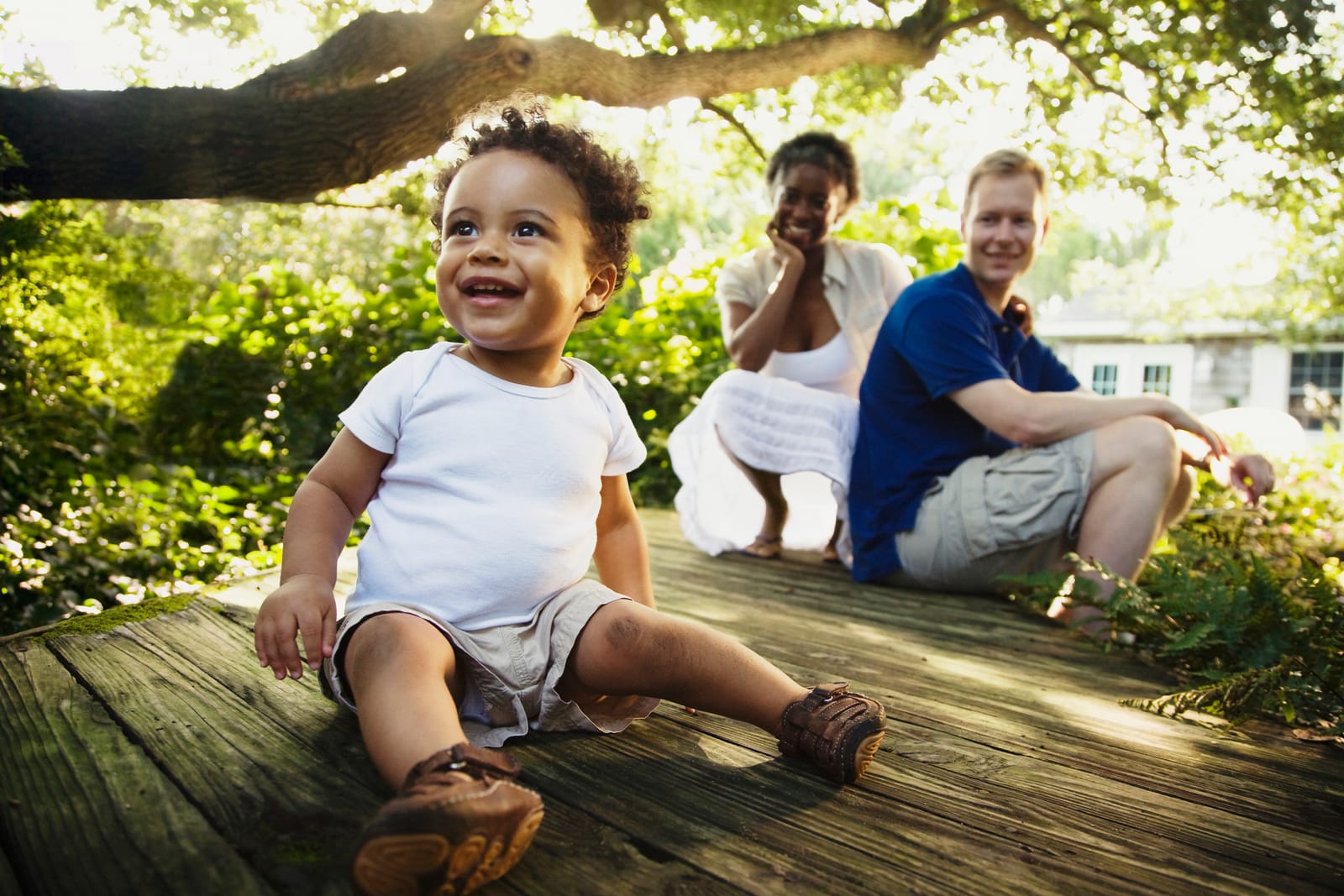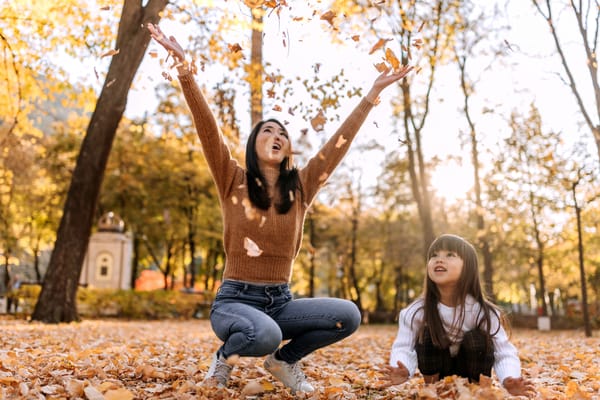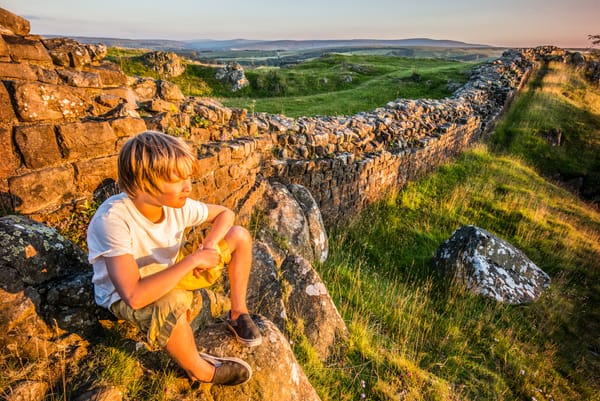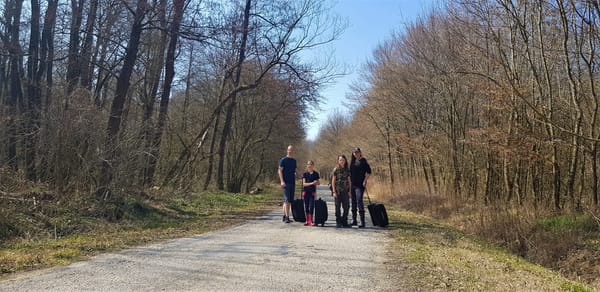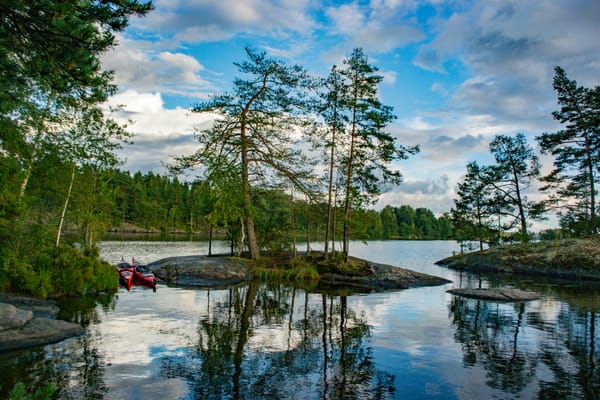Raising children is an immersive, life-changing experience, one that constantly challenges and inspires us says Maria Rogers
As parents, we undoubtedly want to create a nurturing environment that fosters curiosity, wonder, and joy in our children’s hearts. Yet, in a world often clouded by cynicism, fear, and disillusionment, maintaining a sense of enchantment can seem like a courageous act of rebellion.
How do we encourage our children to see the beauty in the world when we ourselves are aware of its darker sides? How do we cultivate curiosity and wonder in the face of a rapidly modernizing society that often overlooks the magic in everyday life?
I find myself reflecting on these questions deeply, drawing on my own childhood experiences in Russia. In that context, where superstitions and remnants of pagan traditions still seep into everyday life, there was an ever-present sense of mystery surrounding the world.
The belief in the unseen—the idea that life exists not just in what we can see and measure but in intangible forces—shaped my worldview, one where I felt connected to something greater than myself. I believed — and admittedly still do — in domovoy (a household spirit of the kin), in the ability of certain herbs to ward off evil, and in many other things that might seem odd or silly to someone from a different background. This perspective, I believe, holds incredible value for raising children, particularly in a time when information is at our fingertips but real knowledge—the kind that shapes our souls—seems to be slipping away.
The Courage to Stay Enchanted
Yes, it takes courage to remain enchanted, especially as we become more aware of the world’s troubles. From climate crises to social injustices, the weight of reality can often dim our sense of wonder. But raising children is the perfect reminder that the world is still full of magic, even in its imperfections. Children naturally see the world with fresh eyes, their minds not yet burdened with adult concerns. As parents, it is our responsibility to nurture and protect that curiosity, even as we guide them through the complexities of life and in inevitable disappointments.
When my almost three-year-old son discovers a new bug or slug in the garden, I make sure to show my own curiosity instead of reacting with the learned disgust that many adults may have toward such creatures. This also goes for the discovery of a dead bird or a mouse, we’re not shying away, instead, we’re acknowledging that this too is a part of life. Children learn by example, and how we respond to the world around us informs their perspectives. By stripping exploration of judgment, we allow them to experience the essence of discovering something they haven’t seen or felt before. To them, that bug is as wondrous as the stars, and it’s our job to remind ourselves of that same wonder.
Exploring the world with our children teaches them to embrace life’s mysteries, to marvel at what is before them, and to ask questions without needing all the answers. This mindset is essential not just for childhood but for life itself. In a way, it is an antidote to the cynicism or indifference that can sometimes take over as we grow older.
One of the most powerful ways to stay enchanted with the world is through storytelling. Stories, especially those steeped in folklore and legends, connect us to something larger than ourselves. They are rooted in human experience, passed down through generations to teach, to guide, and to inspire. Folktales from my own culture have always been a source of fascination and comfort to me. These stories were rich with meaning, filled with creatures and spirits that walked the line between the seen and unseen (Baba Yaga, The Firebird and Princess Vasilisa, Sivko-Burko etc.)
I like sharing these stories with my children, weaving them into our daily lives. It might be a tale about a magical forest, a talking animal, or a heroic figure who outwits evil, these stories help to widen their perspectives and enrich their minds. They provide context for the natural world, a reminder that we are part of an ancient, ongoing story. When we talk about plants, animals, food, or other things that surround us, there’s always a folktale or legend, or a memory shared, rooted in my own childhood experiences, that can add depth and wonder to those ordinary objects or moments. A simple walk through the woods can transform into an adventure where trees are guardians, streams carry messages, and animals have wisdom to share. In this way, our surroundings come alive, and our children learn that the world is not just a place to inhabit but a story in which they are active participants.
A Different Kind of Knowing
My own grandmother was an amazing storyteller. She knew things about things—knowledge that wasn’t found in books or, as we would now say, on the Internet. Growing up in a time without the instant access to information we have today, she embodied a different kind of knowing: a wisdom that came from observation, listening, and a deep connection with the rhythms of life. It was through her stories that I learned to appreciate the richness of the unseen world, to respect the mysteries of nature, and to trust in something greater than myself. Her stories were, in essence, a form of enchantment, a way of showing that life’s meaning wasn’t confined to the concrete facts we so often rely on today.
Believing in the unseen is not about denying science or facts. Rather, it’s about expanding our understanding of reality to include the things we can’t quantify: wonder, connection, intuition, and spirit. It’s about acknowledging that there is more to life than what meets the eye, and teaching our children that they are part of a world that is full of magic and meaning. This belief can help them feel that they belong to something greater than themselves, and that caring for the world is not just an obligation but a joyful, intrinsic part of being alive.
A Reverence for the Unseen
When we approach life with a sense of reverence for the unseen, we invite our children to do the same. Through rituals, celebrations, or even quiet moments of observation, we can help them feel connected to the larger world around them. This might mean taking time to appreciate the changing seasons, to marvel at the moon during different phases, or to notice the small wonders of daily life—like the intricate patterns on a leaf, the quiet rustle of wind through the trees, or a spiderweb appearing just overnight on a window sill.
In many ways, this practice of wonder is also an antidote to the anxiety that can arise in children (and adults) as they navigate a fast-paced, unpredictable world. It gives them a sense of grounding, a reminder that they are part of a larger web of life, and that life, in all its complexity, is still full of beauty and meaning at any given moment.
In our family, we have little traditions that help us feel connected to each other and to the world around us as well as to our multicultural heritage. Cooking traditional things like borscht with herbs from the garden, wearing my grandmother’s shawl made of red wool whilst reading stories to my children, sometimes it’s as simple as lighting a candle before dinner, or taking a moment to watch the sunset at the end of the day. These small acts of reverence remind us that we are part of something greater than ourselves, and they help to instill a sense of peace and gratitude in my children.
Bringing the Magic into Everyday
In a way, these rituals are too a form of enchantment—ways of turning the mundane into something magical. They help to slow down the pace of life and create space for reflection, wonder, and connection. And they remind us that even in a world that often feels chaotic, there are still moments of beauty and stillness to be found.
In today’s world, there’s a growing temptation to outsource our thinking to technology, to rely on algorithms and artificial intelligence to tell us what to believe and how to live. While there’s no denying the usefulness of technology in many areas of life, I believe that it’s more important than ever to resist the pull of artificial intelligence when it comes to the deeper questions of life.
As I mentioned earlier, my grandmother had a way of knowing things that didn’t come from books or the Internet. It came from experience, intuition, and a deep connection to the world around her. This kind of knowledge is becoming increasingly rare in a world that prioritizes convenience and speed over reflection and depth. But it’s precisely this kind of knowledge that we need to pass on to our children, if we want them to grow up with a sense of wonder, resilience, and a connection to this world, each other and whatever else lies beyond.
We shouldn’t let our own intelligence become artificial. The knowledge that truly enriches our lives doesn’t come from a screen or a search engine. It comes from observing the world, listening to stories, and engaging with life on a deeper level. It comes from cultivating curiosity, wonder, and a sense of belonging to — and being a part of —the world that is full of mystery and magic.
Maria Rogers is an award-winning musician and a mother of two children (age almost 3, and 3 months), based near Windsor. Passionate about the magical storytelling she created Inside A Fairytale project insideafairytale.co.uk aimed to add enchantment into the everyday life.


